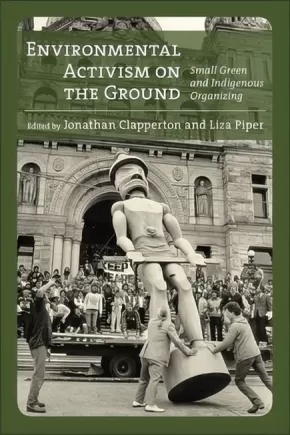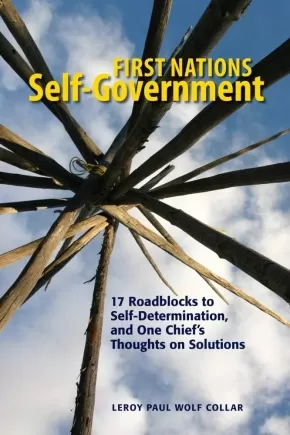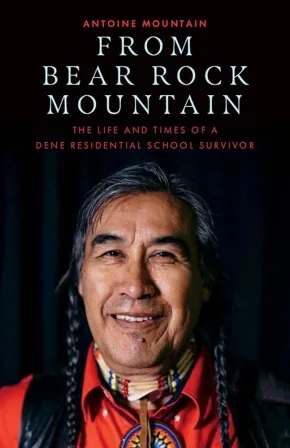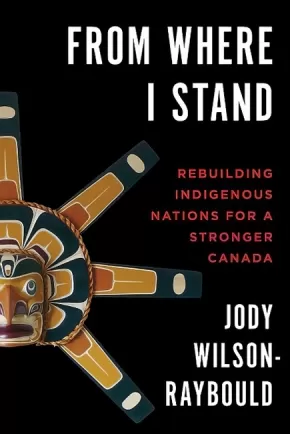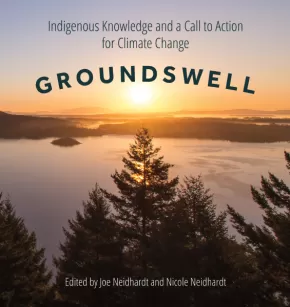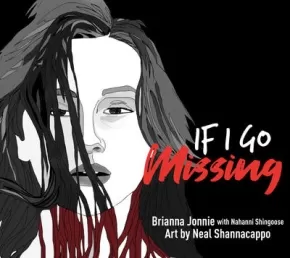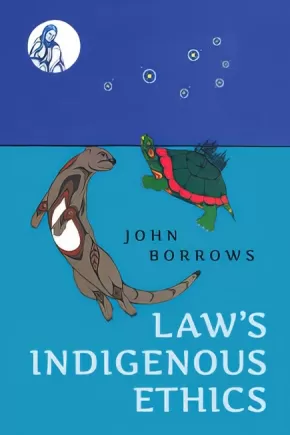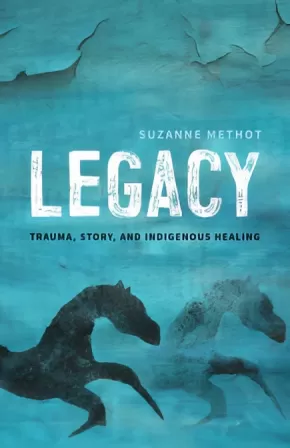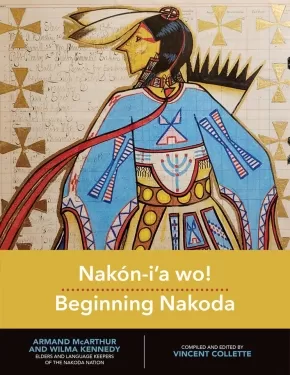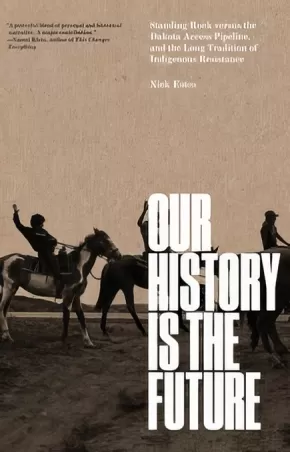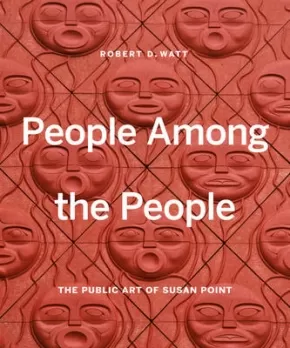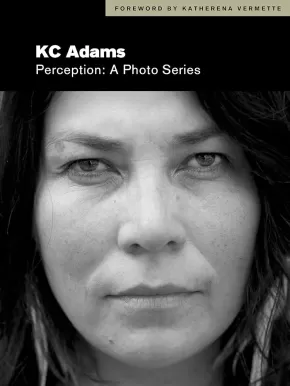
Indigenous Peoples
286
-
300
of
432 Results;
Sort By
Go To
of 29
Environmental Activism on the Ground: Small Green and Indigenous Organizing
$39.99
Editors:
Format:
Paperback
Text Content Territories:
Indigenous American; Indigenous Canadian;
Grade Levels: 12; University/College;
ISBN / Barcode: 9781773850047
Synopsis:
Synopsis:
Environmental Activism on the Ground draws upon a wide range of interdisciplinary scholarship to examine small scale, local environmental activism, paying particular attention to Indigenous experiences. It illuminates the questions that are central to the ongoing evolution of the environmental movement while reappraising the history and character of late twentieth and early twenty-first environmentalism in Canada, the United States, and beyond.
This collection considers the different ways in which Indigenous and non-Indigenous activists have worked to achieve significant change. It examines attempts to resist exploitative and damaging resource developments, and the establishment of parks, heritage sites, and protected areas that recognize the indivisibility of cultural and natural resources. It pays special attention to the thriving environmentalism of the 1960s through the 1980s, an era which saw the rise of major organizations such as Greenpeace along with the flourishing of local and community-based environmental activism.
Environmental Activism on the Ground emphasizes the effects of local and Indigenous activism, offering lessons and directions from the ground up. It demonstrates that the modern environmental movement has been as much a small-scale, ordinary activity as a large-scale, elite one.
Reviews
"Environmental Activism on the Ground succeeds splendidly in complicating and enriching our understanding of modern environmentalism. Focusing on Indigenous and non-Indigenous activists in an impressive range of settings, Jonathan Clapperton and Liza Piper draw together and interpret diverse methodological and conceptual insights in a way that gives new, deserved prominence to those who have strived—and continue to strive—for environmental justice at the local level. These accounts left me both enlightened and heartened. Scholars from across the humanities and social sciences will welcome this volume." - Richard A. Rajala, Department of History, University of Victoria.
Educator Information
Table of Contents:
Illustrations
Acknowledgments
Introduction: In the Shadow of the Green Giants: Environmentalism and Civic Engagements - Jonathan Clappeton & Liza Piper
Part 1: Processes and Possibilities
1. Strategies for Survival: First Nations Encounters with Environmentalism - Anna J. Willow
2. Native/Non-Native Alliances: Challenging Fossil Fuel Industry Shipping at Pacific Northwest Ports - Zoltán Grossman
3. Conserving Contested Ground: Soverigenty-Driven Stewardship by the White Mountain Apache Tribe and the Fort Apache Heritage Foundation - Jon R. Welch
4. From Southern Alberta to Northern Brazil: Indigenous Conservation and the Preservation of Cultural Resources - Sterling Evans
5. Parks For and By the People: Acknowledging Ordinary People in the Formation, Protection, and Use of State and Provincial Parks - Jesica M. DeWitt
Part 2: Histories
6. Alternatives: Environmental and Indigenous Activism in the 1970s - Liza Piper
7. Marmion Lake Generating Station: Another Northern Scandal? - Tobasonakwut Peter Kinew
8. Environmental Activism as Anti-Conquest: The Nuu-chah-nulth and Environmentalists in the Contact Zone of Clayoquont Sound - Jonathan Clapperton
9. Local Economic Independence as Environmentalism: Nova Scotia in the 1970s - Mark Leeming
10. “Not an Easy Thing to Implement”: The Conservation Council of New Brunswick and Environmental Organization in a Resource-Dependent Province, 1969-1983 - Mark J. McLaughlin
11. The Ebb and Flow of Local Environmental Activism: The Society for Pollution and Environmental Control (SPEC), British Columbia - Jonathan Clapperton
12: From Scoieal Movement to Environmental Behemoth: How Greenpeace Got Big - Frank Zelko
Afterword: Lessons from the Ground Up - Jonathan Clapperton & Liza Piper
Bibliography
List of Contributors
Index
Additional Information
752 pages | 6.00" x 9.00"
Authenticity Note: Because this work includes contributions from Indigenous peoples, it has been labelled as containing Authentic Indigenous Text.
First Nations Self-Government: 17 Roadblocks, and One Chief's Thoughts on Solutions
$24.95
Format:
Paperback
Text Content Territories:
Indigenous Canadian; First Nations; Blackfoot Confederacy (Siksikaitsitapi); Siksika (Blackfoot);
Grade Levels: University/College;
ISBN / Barcode: 9781550598216
Synopsis:
Synopsis:
Indigenous Peoples in Canada are continuing to assert their right to self-determination in this era of reconciliation. While dozens of Indigenous communities have signed varying forms of self-government agreements with the federal government, Indigenous Nations still face many obstacles along the path to true self-determination.
As a former Chief of Siksika Nation in southern Alberta, Leroy Wolf Collar dealt with many of the same problems other Indigenous Nations face across the country. From serious housing shortages to the lack of opportunities for youth, Chief Wolf Collar experienced the challenges and frustrations that come from operating in a colonial system still constrained by the Indian Act.
How do Indigenous Peoples move on from this defective system? Chief Wolf Collar identifies 17 issues that currently hinder Indigenous Nations—including broken treaty promises, problems with common forms of band administration, and the intrusion of provincial governments—along with potential solutions to overcome them.
This guide is for current and aspiring Indigenous leaders who want to increase their understanding of good governance, management, and leadership, as well as those who want to explore issues around Indigenous self-determination in Canada.
Educator Information
Recommended in the Canadian Indigenous Books for Schools 2020/2021 resource list for grades 11 and 12 for use in these areas: Law, English Language Arts, and Social Studies.
Additional Information
128 pages | 6.00" x 9.00"
From Bear Rock Mountain: The Life and Times of a Dene Residential School Survivor
$30.00
Format:
Hardcover
Text Content Territories:
Indigenous Canadian; First Nations; Dene;
ISBN / Barcode: 9781927366806
Synopsis:
Synopsis:
In this poetic, poignant memoir, Dene artist and social activist Antoine Mountain paints an unforgettable picture of his journey from residential school to art school—and his path to healing.
In 1949, Antoine Mountain was born on the land near Radelie Koe, Fort Good Hope, Northwest Territories. At the tender age of seven, he was stolen away from his home and sent to a residential school—run by the Roman Catholic Church in collusion with the Government of Canada—three hundred kilometres away. Over the next twelve years, the three residential schools Mountain was forced to attend systematically worked to erase his language and culture, the very roots of his identity.
While reconnecting to that which had been taken from him, he had a disturbing and painful revelation of the bitter depths of colonialism and its legacy of cultural genocide. Canada has its own holocaust, Mountain argues.
As a celebrated artist and social activist today, Mountain shares this moving, personal story of healing and the reclamation of his Dene identity.
Educator Information
Recommended in the Canadian Indigenous Books for Schools 2019-2020 resource list as being useful for grades 9 to 12 in the following subject areas: English Language Arts, Social Studies.
Included in this story are personal stories of residential school and addiction.
Additional Information
272 pages | 5.50" x 8.50"
From Where I Stand: Rebuilding Indigenous Nations for a Stronger Canada
$24.95
Format:
Paperback
Text Content Territories:
Indigenous Canadian;
Grade Levels: 12; University/College;
ISBN / Barcode: 9780774880534
Synopsis:
Synopsis:
An Indigenous leader who has dedicated her life to Indigenous Rights, Jody Wilson-Raybould has represented both First Nations and the Crown at the highest levels. And she is not afraid to give Canadians what they need most – straight talk on what has to be done to deconstruct the colonial legacy and achieve true reconciliation in Canada.
In this powerful book, drawn from Wilson-Raybould’s speeches and other writings, she urges us all – governments, Indigenous Nations, everyone – to build upon the momentum already gained in the reconciliation process or risk hard-won progress being lost. The choice is stark: support Indigenous-led initiatives for Nation rebuilding or revert to governments just managing “the problem.” Frank and impassioned, she also argues that true reconciliation will never occur so long as governments deny Indigenous Peoples their rights and the Indian Act continues to exist. Until then, we’ll be stuck in the status quo – mired in conflicts and expensive court cases that do nothing to improve people’s lives or heal the country.
The good news is that Indigenous Nations already have the solutions. Now it is time to act and build a shared future based on the foundations of trust, cooperation, good governance, and recognition. Removing the barriers that are keeping these solutions from being put into effect will not only empower Indigenous Peoples – it will enrich all Canadians and make Canada stronger.
From Where I Stand is indispensable reading for anyone who wants to dig deeper into the reconciliation process and know what they can do to make a difference, from engaged citizens and students to leaders and policy-makers, educators and academics, and lawyers and consultants.
Reviews
"From Where I Stand is a must-read book for all Canadians. Puglaas shares a clear understanding of where we have come from, the issues we must address, and the pathways to a transformed future. Having witnessed her remarkable courage and capacity as Canada’s attorney general and her determination to do what is right without succumbing to unrelenting political pressure, Puglaas stands tall among Canadians as a person for whom truth, thoughtfulness, and principle are not mere words – but values to sustain a different kind of policy and politics." - Mary Ellen Turpel-Lafond (Aki-Kwe), Professor of Law, Allard Law School UBC, and Director of the Residential School History and Dialogue Centre
"Jody Wilson-Raybould's quest for justice has long driven her work. I first saw this when she was a law student and this commitment to justice has only been deepened by subsequent public service. Her unwavering commitment to reconciliation, balance, and good governance springs off every page of this book." - John Borrows, Canada Research Chair in Indigenous Law, University of Victoria Law School
Educator Information
Table of Contents
Foreword
Introduction
Moving through the Postcolonial Door
We Truly Have Come a Long Way ...
Idle No More and Recapturing the Spirit and Intent of the Two Row Wampum
On the Parallels, and Differences, between Canada and South Africa
Our Shared Histories and the Path of Reconciliation
Rights and Recognition
Self-Determination and the Inherent Right of Self-Government
Translating Hard-Fought-For Rights into Practical and Meaningful Benefits
UNDRIP Is the Start Not the Finishing Line
Defining the Path of Reconciliation through Section 35
Indigenous Rights Are Human Rights
Implementing UNDRIP
Governance in the Post-Indian Act World
Toppling the Indian Act Tree
First Nations Jurisdiction over Citizenship
Holding and Managing Our Lands
On Accountability and Transparency
Developing a New Fiscal Relationship
The Governance Toolkit and Building on Our Success
Building Business Relationships and the Duty to Consult
Economic Development Depends on Self-Government
First Nations Are Not a Box to Tick Off
Who Owns and Is Responsible for the Water?
On Certainty and Why It’s Elusive
Restoring Balance, Correcting Injustices, and Remaining Vigilant
A Litmus Test for Reconciliation Is the Status of Women
Preventing First Contacts with the Criminal Justice System
On Sticking Our Necks Out
On Obstruction, Denial, and Canada’s Failure to Uphold the Rule of Law
Each of Us, In Our Own Way, Is a Hiligaxste’
Acknowledgments
A Note on Terminology and the Speeches
Index
Additional Information
264 pages | 6.00" x 9.00"
Groundswell: Indigenous Knowledge and a Call to Action for Climate Change
$49.95
Artists:
Editors:
Format:
Hardcover
Text Content Territories:
Indigenous;
ISBN / Barcode: 9781771743440
Synopsis:
Synopsis:
Groundswell is a collection of stirring and passionate essays from both Indigenous and non-Indigenous writers that eloquently present a compelling message about how traditional Indigenous knowledge and practices can and must be used to address climate change. The chapters interconnect, taking us from radical thinking to the gentleness of breath, and demonstrate that we are all in this together—everyone must understand what needs to be accomplished and participate in the care of Mother Earth.
Authors tap into religious and spiritual perspectives, explore the wisdom of youth, and share the insights of a nature-based philosophy. These collective writings give you a chance to contemplate and formulate your own direction. A moral revolution that can produce a groundswell of momentum toward a diverse society based on human rights, Indigenous rights, and the rights of Mother Earth.
Beautifully illustrated with photographs, Groundswell is augmented with video recordings from the authors and a short documentary film, available on the project’s website. Profits from the book will help support the videos, documentary, and future projects of The Call to Action for Climate Change. Visit www.envisionthebigpicture.com.
Reviews
"A beautifully illustrated and highly engaging read is Groundswell: Indigenous Knowledge and a Call to Action for Climate Change, edited by Joe Neidhardt and Nicole Neidhardt. Essays from both Indigenous and non-Indigenous contributors present a strong vision for how traditional knowledge can be used to fight climate change, as well as how we can work together toward a more balanced and harmonious relationship with nature." - Joan Elliott, Librarian/Manager, Stewart Resources Centre
“The most important environmental development of the last decade is the full emergence and full recognition of the Native leadership at the very front of every fight. One of the things that makes that leadership so powerful is its deep roots in tradition and thought; this book gives the reader some sense of that tradition, though of course it is so vast that it would take a thousand such books to capture it all!”— Bill McKibben; Author Eaarth: Making a Life on a Tough New Planet
“This book shares Indigenous knowledge that can teach us to listen to and be in relationship to the Earth in a way that honors the sacredness and interdependence of all life forms. A paradigm shift, informed by Indigenous ways of knowing and acting, is crucial in this time of climate change.”— Laura Stivers; Author of Disrupting Homelessness: Alternative Christian Approaches
“Groundswell: Indigenous Knowledge and a Call to Action for Climate Change... is a powerful text that introduces a much-needed perspective on the issue of climate change. Much has been said and written on the topic of climate change from a purely logical perspective, which is essential, but Groundswell introduces an equally important perspective, that of the spiritual implications of climate change. From the perspective of Native people, we start to unravel the complex emotions when learning of the negative effects of climate change through an entirely different lens than the lens supplied to us through westernized education. There is an aspect of spiritual connection that Native people have when approaching the topic of climate change and the destructive and corrosive actions taken against our Earth. I hate to use the phrase “spiritual connection,” because spirituality has been wrongly stripped down to a non-science, when in reality, it is something that just cannot be defined by science. One’s spirit is only one way of saying, one’s being, essence, one’s present energy, or one’s connection to all that is, beyond thought and logic. It is the core of us all, and it is a feeling that connects us all, and in my opinion, uniquely respected and understood by Native people. This is one reason I believe Native people feel an obligation to protect this Earth, because we hold this truth close culturally. We and everything are one, and the destruction of our planet is also the destruction of ourselves. When reading the chapter “Rooted: Staying Grounded Amidst a Changing Landscape” by Nicole Neidhardt, Teka Everstz, and Gina Mowatt, I was moved by the presence of youth voices. As a young, Indigenous person myself I felt a great power, understanding, and nuance to the voices emerging in the chapter. The writers spoke of the complexities and the duality of living as an Indigenous person in western society that I have myself experienced. They also addressed the modern paradox of social media, in that in as many ways as it is bringing people together, in many ways it is tearing us apart and allowing for non-accountability in our society. It is rare to find a text that so genuinely sums up the issues of living as an Indigenous youth in western culture and our struggle of being heard when voicing our truths. I believe that this text, in the hands of other young people like the writers will be moved by it like I was. Nicole Neidhardt, Teka Everstz, and Gina Mowatt asked for more than a challenge of the reader’s ideology, they screamed out for a call to action." — Forrest Goodluck; Award-winning youth filmmaker, appears opposite Leonardo DiCaprio in The Revenant
“Reading the reflections of three young Indigenous activists (Rooted: Staying Grounded Amidst a Changing Landscape) is special and something I’ve admittedly never experienced before. What I thought about while reading this was my own decades' long growing pains, not just in body, but rather identity. My own insecurities has led me down dark walkways toward depression and anxiety. For years—and still to this day—I am petrified of the inescapable uncertainty the universe’s laws present me. I had zero doubts about three Cosmic proclamations: death, taxes and thermodynamics. Their stories are a sharp, buoyant reminder of elation and advocacy in a world of overwhelming and seemingly unlimited power: colonialism, imperialism and industrial capitalism. These narratives bring me moral conviction and faith as we all walk hand-in-hand into our carbon wrought future.” — Kalen Goodluck; A freelance documentary photographer, photojournalist, and journalist
“Groundswell is about helping one another through the threat of death we experience on this increasingly traumatized planet—in the air, on the land and in the water—and nurturing it back to life. Neidhardt and his kindred spirits offer us new, yet familiar, resources for a creative participation in that gracious process. “New” for us who are not yet listening attentively to Indigenous instructions voiced in their “Older Testament.” “Familiar” insofar as we are given to see, truly see, our relatedness and belonging to all things, great and small, in this created world, our “common home” (Pope Francis). One message powerfully conveyed throughout this book is that planetary health is primary, whereas human well-being is derivative (Thomas Berry). This message turns the infamous “Doctrine of Discovery” upside down, inviting us, all of us together, into fresh discoveries of healing wisdom in ancient treasures still alive and well for us. Again, “together”: “A little trickle of water that goes alone goes crookedly” (Gbaya proverb). Together we may pray for vibrant faith and spiritual rootedness to yield justice: equilibrium throughout creation and among all people. Such faith is indeed a “renewable energy” (Larry Rasmussen)!” — Thomas G. Christensen; Author of An African Tree of Life
Educator Information
Recommended Resource for Grades 11-12 and College/University Students.
Social Studies/B.C. First Peoples/Comparative Cultures/Contemporary Indigenous Studies Curricular Concepts Explored in the Text:
- Interactions between cultures and the natural environment.
- The role of value systems and belief systems in the development of cultures.
- Varied identities and worldviews of Indigenous peoples, and the importance of the interconnection of family, relationships, language, culture, and the land.
- Factors that sustain and challenge the identities and worldviews of Indigenous peoples.
Science/Environmental Science Curricular Concepts Explored in the Text:
- First Peoples knowledge and other traditional ecological knowledge in sustaining biodiversity.
- Human actions and their impact on ecosystem integrity.
- First Peoples ways of knowing and doing.
- Resource stewardship.
English/English First Peoples Curricular Concepts Explored in the Text:
- First Peoples languages and texts reflect their cultures, knowledge, histories, and worldviews.
- Critically, creatively, and reflectively explore ideas within, between, and beyond texts.
- Construct meaningful personal connections between self, text, and world.
- The diversity within and across First Peoples societies as represented in texts.
TABLE OF CONTENTS
Preface
Invocation: Using Contemplative Meditation to Foster Change
Introduction: This Is the Moral Revolution
Climate Change Snapshots by Kristen Dey
Rooted: Staying Grounded Amidst a Changing Landscape by Nicole Neidhardt, Teka Everstz, and Gina Mowatt
What You Need to Know Is Not in a Book: Indigenous Education by Larry Emerson
Illuminating the Path Forward by Erin Brillon
Stories from Our Elders by Andy Everson
Religions for the Earth by Karenna Gore
How We Can Work Together by Merle Lefkoff
Essential Elements of Change by Mary Hasbah Roessel
The Radical Vision of Indigenous Resurgence by Taiaiake Alfred
Sharing the Wealth: Bending Toward Justice by Rod Dobell
The Commonwealth of Breath by David Abram
Science, Spirituality, Justice by Larry Rasmussen
The Moral Revolution, Weaving All the Parts by Joe Neidhardt
Acknowledgements
Further References
Further Readings
Contributors
Contributors: David Abram, Taiaiake Alfred, Erin Brillon, Kristen Dey, Rod Dobell, Larry Emerson, Andy Everson, Teka Everstz, Karenna Gore, Merle Lefkoff, Gina Mowatt, Joe Neidhardt, Nicole Neidhardt, Larry Rasmussen, Mary Hasbah Roessel.
Additional Information
208 Pages | 8.5" x 9" | ISBN: 9781771743440 | Hardcover
Halfbreed: Restored Edition (2 in Stock)
$19.95
Format:
Paperback
Text Content Territories:
Indigenous Canadian; Métis;
ISBN / Barcode: 9780771024092
Synopsis:
Synopsis:
A new, fully restored edition of the essential Canadian classic.
An unflinchingly honest memoir of her experience as a Métis woman in Canada, Maria Campbell's Halfbreed depicts the realities that she endured and, above all, overcame. Maria was born in Northern Saskatchewan, her father the grandson of a Scottish businessman and Métis woman--a niece of Gabriel Dumont whose family fought alongside Riel and Dumont in the 1885 Rebellion; her mother the daughter of a Cree woman and French-American man. This extraordinary account, originally published in 1973, bravely explores the poverty, oppression, alcoholism, addiction, and tragedy Maria endured throughout her childhood and into her early adult life, underscored by living in the margins of a country pervaded by hatred, discrimination, and mistrust. Laced with spare moments of love and joy, this is a memoir of family ties and finding an identity in a heritage that is neither wholly Indigenous or Anglo; of strength and resilience; of indominatable spirit.
This edition of Halfbreed includes a new introduction written by Indigenous (Métis) scholar Dr. Kim Anderson detailing the extraordinary work that Maria has been doing since its original publication 46 years ago, and an afterword by the author looking at what has changed, and also what has not, for Indigenous people in Canada today. Restored are the recently discovered missing pages from the original text of this groundbreaking and significant work.
Additional Information
224 pages | 5.21" x 7.99"
If I Go Missing (2 in stock, in reprint)
$24.95
Format:
Hardcover
Text Content Territories:
Indigenous Canadian; First Nations; Anishinaabeg; Ojibway;
ISBN / Barcode: 9781459414518
Synopsis:
Synopsis:
Combining graphic fiction and non-fiction, this young adult graphic novel serves as a window into one of the unique dangers of being an Indigenous teen in Canada today. The text of the book is derived from excerpts of a letter written to the Winnipeg Chief of Police by fourteen-year-old Brianna Jonnie — a letter that went viral and was also the basis of a documentary film. In her letter, Jonnie calls out the authorities for neglecting to immediately investigate missing Indigenous people and urges them to "not treat me as the Indigenous person I am proud to be," if she were to be reported missing.
Indigenous artist Neal Shannacappo provides the artwork for the book. Through his illustrations he imagines a situation in which a young Indigenous woman does disappear, portraying the reaction of her community, her friends, the police and media.
An author's note at the end of the book provides context for young readers about Missing and Murdered Indigenous Women and Girls in Canada.
Awards
- 2021 Indigenous Voices Awards winner for Published Graphic Novels, Comics, and Illustrated Books in any Language.
Educator Information
Recommended Ages: 12 - 18.
Recommended in the Canadian Indigenous Books for Schools 2020/2021 resource list for grades 7 to 12 for use in these areas: English Language Arts, Social Justice, and Social Studies.
This book is available in French: Si je disparais
Additional Information
64 pages | 8.50" x 9.50" | 100+ 2-colour illustrations
Indigenous Relations: Insights, Tips & Suggestions to Make Reconciliation a Reality
$19.95
Format:
Paperback
Text Content Territories:
Indigenous Canadian; First Nations; Inuit; Métis;
ISBN / Barcode: 9781989025642
Synopsis:
Synopsis:
Indigenous Relations: Your Guide to Working Effectively with First Nations, Métis, and Inuit.
A timely sequel to the bestselling 21 Things You May Not Know About the Indian Act - and an invaluable guide for anyone seeking to work more effectively with Indigenous Peoples.
We are all treaty people. But what are the everyday impacts of treaties, and how can we effectively work toward reconciliation if we're worried our words and actions will unintentionally cause harm?
Hereditary chief and leading Indigenous relations trainer Bob Joseph is your guide to respecting cultural differences and improving your personal relationships and business interactions with Indigenous Peoples. Practical and inclusive, Indigenous Relations interprets the difference between hereditary and elected leadership, and why it matters; explains the intricacies of Aboriginal Rights and Title, and the treaty process; and demonstrates the lasting impact of the Indian Act, including the barriers that Indigenous communities face and the truth behind common myths and stereotypes perpetuated since Confederation.
Indigenous Relations equips you with the necessary knowledge to respectfully avoid missteps in your work and daily life, and offers an eight-part process to help business and government work more effectively with Indigenous Peoples - benefitting workplace culture as well as the bottom line. Indigenous Relations is an invaluable tool for anyone who wants to improve their cultural competency and undo the legacy of the Indian Act.
Educator Information
Recommended in the Canadian Indigenous Books for Schools 2020/2021 resource list for grades 11 and 12 in these areas: Social Studies, Law, English Language Arts, and Social Justice.
Additional Information
200 pages | 8.00" x 5.00"
Lac Pelletier: My Métis Home
$20.00
Text Content Territories:
Indigenous Canadian; Métis;
ISBN / Barcode: 978-1-926795-91-1
Synopsis:
Synopsis:
Gabriel Dumont Institute Press is honoured to publish Cecile Blanke’s Lac Pelletier: My Métis Home. A prominent Métis Elder living in Swift Current, Saskatchewan, but with deep roots in nearby Lac Pelletier, Cecile has been a tireless presence on the Métis and larger cultural scene in southwest Saskatchewan for many years. The history of the southwest Saskatchewan Métis is not widely known, and this book contributes significantly to our knowledge of this community. With her vivid memories of Lac Pelletier’s local families and traditions, we are left with an enduring portrait of a caring Métis community which maintained close family ties and lived in harmony with Lac Pelletier’s flora and fauna. Cecile also chronicles the racism that the local Métis often faced and discussed how colonization made her and others question their Métis identity. With time and perspective, she overcame this self-hatred and became proud of her Métis heritage, becoming its biggest promoter in her region of Saskatchewan.
Educator Information
Recommended by Gabriel Dumont Institute for these grade levels: Secondary/Post-Secondary/Adult
Law's Indigenous Ethics
$47.95
Format:
Paperback
Text Content Territories:
Indigenous Canadian; First Nations; Anishinaabeg;
Grade Levels: 12; University/College;
ISBN / Barcode: 9781487523558
Synopsis:
Synopsis:
Law’s Indigenous Ethics examines the revitalization of Indigenous peoples’ relationship to their own laws and, in so doing, attempts to enrich Canadian constitutional law more generally. Organized around the seven Anishinaabe grandmother and grandfather teachings of love, truth, bravery, humility, wisdom, honesty, and respect, this book explores ethics in relation to Aboriginal issues including title, treaties, legal education, and residential schools.
With characteristic depth and sensitivity, John Borrows brings insights drawn from philosophy, law, and political science to bear on some of the most pressing issues that arise in contemplating the interaction between Canadian state law and Indigenous legal traditions. In the course of a wide-ranging but accessible inquiry, he discusses such topics as Indigenous agency, self-determination, legal pluralism, and power. In its use of Anishinaabe stories and methodologies drawn from the emerging field of Indigenous studies, Law’s Indigenous Ethics makes a significant contribution to scholarly debate and is an essential resource for readers seeking a deeper understanding of Indigenous rights, societies, and cultures.
Reviews
"Law’s Indigenous Ethics addresses very controversial topics in Canada, not just in Indigenous legal studies, but far beyond that. John Borrows employs story work methodology, along with thorough legal research, ensuring that his work is truly leading edge. Law’s Indigenous Ethics will further advance Indigenous studies in Canada and beyond. Borrows’s work moves beyond the binary, divisive, and linear ideologies dominating the Indigenous intellectual landscape in Canada. He provides nuance, complicates dominate narratives, and gives the reader much food for thought and, more importantly, asks the reader to think, reflect, and embrace the principles embedded in the seven grandmother and grandfather teachings as a whole." -Deborah McGregor, Osgoode Hall Law School, Canada Research Chair in Indigenous Environmental Justice, York University
"Law’s Indigenous Ethics is extremely novel, important, and has the potential for great influence. Demonstrating tremendous expertise and fluency with its subjects, John Borrows’s arguments are sound and thoughtful, providing a number of important insights that lead me to adjust the way I think about issues that are very familiar to me." -Bethany Berger, Wallace Stevens Professor of Law, University of Connecticut
Additional Information
400 pages | 6.00" x 9.00"
Legacy: Trauma, Story, and Indigenous Healing
$24.95
Format:
Paperback
Text Content Territories:
Indigenous Canadian;
Grade Levels: 12; University/College;
ISBN / Barcode: 9781770414259
Synopsis:
Synopsis:
Exploring intergenerational trauma in Indigenous communities — and strategies for healing — with provocative prose and an empathetic approach
Indigenous peoples have shockingly higher rates of addiction, depression, diabetes, and other chronic health conditions than other North Americans. According to the Aboriginal Healing Foundation, these are a result of intergenerational trauma: the unresolved terror, anger, fear, and grief created in Indigenous communities by the painful experiences of colonialism, passed down from generation to generation.
How are we to turn this desperate tide? With passionate argumentation and chillingly clear prose, author and educator Suzanne Methot uses her own and others’ stories to trace the roots of colonial trauma and the mechanisms by which trauma has become intergenerational, and she explores the Indigenous ways of knowing that can lead us toward change.
Reviews
“This book is accessible, relatable, and full of storytelling about real people. It deeply resonates with me as a traditional counsellor, educator, and Indigenous person. Suzanne Methot, a brave Nehiyaw writer and community helper, takes up the challenges of logically explaining a child’s traumatized brain and body and how these impacts continue into adulthood. Methot also explores Indigenous health-care models, proving that Indigenous values provide solutions. This book uncovers the critical need for legislation that moves from creating ‘a renewed relationship’ with Indigenous peoples to creating real structural change.” — Dr. Cyndy Baskin, Mi’kmaq Nation, Associate Professor, School of Social Work, Ryerson University
Educator Information
A version of this work for young adults is available here: Killing the Wittigo: Indigenous Culture-Based Approaches to Waking Up, Taking Action, and Doing the Work of Healing
Additional Information
368 pages | 5.50" x 8.50"
Nakón-i'a wo! Beginning Nakoda
$34.95
Editors:
Format:
Coil Bound
Text Content Territories:
Indigenous Canadian; First Nations; Assiniboine (Nakoda Oyadebi);
ISBN / Barcode: 9780889776623
Synopsis:
Synopsis:
Nakón-i'a wo! Beginning Nakoda is a language resource designed to help revitalize and document Nakoda, now spoken in Manitoba and Saskatchewan.
Written for beginning learners of Nakoda (also known as Assiniboine), this workbook, arranged thematically, provides a Nakoda/English lexicon, a vocabulary, a table of kinship terms, a glossary of linguistic terminology, and exercises to do after each lesson.
This book was made possible with the assistance of Elders and Language Keepers of the Nakoda Nation: Armand McArthur and Wilma Kennedy, Main Consultants; with additional contributions by Pete Bigstone, Leona Kroscamp, Freda O'Watch, and Ken Armstrong.
Educator & Series Information
Recommended for Grades 7+
Part of the Indigenous Languages for Beginners series.
Additional Information
304 pages | 8.50" x 11.00" | Black and white illustrations throughout
Our History Is the Future: Standing Rock Versus the Dakota Access Pipeline, and the Long Tradition of Indigenous Resistance
$35.95
Format:
Hardcover
Text Content Territories:
Indigenous American; Native American; Sioux; Dakota; Lakota;
Grade Levels: 12; University/College;
ISBN / Barcode: 9781786636720
Synopsis:
Synopsis:
How two centuries of Indigenous resistance created the movement proclaiming “Water is life”.
In 2016, a small protest encampment at the Standing Rock Reservation in North Dakota, initially established to block construction of the Dakota Access oil pipeline, grew to be the largest Indigenous protest movement in the twenty-first century. Water Protectors knew this battle for native sovereignty had already been fought many times before, and that, even after the encampment was gone, their anticolonial struggle would continue. In Our History Is the Future, Nick Estes traces traditions of Indigenous resistance that led to the #NoDAPL movement. Our History Is the Future is at once a work of history, a manifesto, and an intergenerational story of resistance.
Reviews
“Embedded in the centuries-long struggle for Indigenous liberation resides our best hope for a safe and just future for everyone on this planet. Few events embody that truth as clearly as the resistance at Standing Rock, and the many deep currents that converged there. In this powerful blend of personal and historical narrative, Nick Estes skillfully weaves together transformative stories of resistance from these front lines, never losing sight of their enormous stakes. A major contribution.”—Naomi Klein, author of This Changes Everything
“In Our History Is the Future historian Nick Estes tells a spellbinding story of the 10 month Indigenous resistance at Standing Rock in 2016, animating the lives and characters of the leaders and organizers, emphasizing the powerful leadership of the women. Alone this would be a brilliant analysis of one of the most significant social movements of this century. But embedded in the story and inseparable from it is the centuries-long history of the Oceti Sakowin’ resistance to United States’ genocidal wars and colonial institutions. And woven into these entwined stories of Indigenous resistance is the true history of the United States as a colonialist state and a global history of European colonialism. This book is a jewel—history and analysis that reads like the best poetry—certain to be a classic work as well as a study guide for continued and accelerated resistance.”—Roxanne Dunbar Ortiz, author of An Indigenous Peoples’ History of the United States
“When state violence against peaceful protest at Standing Rock became part of the national consciousness, many noticed Native people for the first time—again. Our History Is the Future is necessary reading, documenting how Native resistance is met with settler erasure: an outcome shaped by land, resources, and the juggernaut of capitalism. Estes has written a powerful history of Seven Fires resolve that demonstrates how Standing Rock is the outcome of history and the beginning of the future.”—Louise Erdrich, author of the National Book Award winner The Round House
“A touching and necessary manifesto and history featuring firsthand accounts of the recent Indigenous uprising against powerful oil companies … With an urgent voice, Estes reminds us that the greed of private corporations must never be allowed to endanger the health of the majority. An important read about Indigenous protesters fighting to protect their ancestral land and uphold their historic values of clean land and water for all humans.” —Kirkus
“Our History Is the Future is a game-changer. In addition to providing a thorough and cogent history of the long tradition of Indigenous resistance, it is also a personal memoir and homage to the Oceti Sakowin; an entreaty to all their relations that demands the ‘emancipation of the earth.’ Estes continues in the legacy of his ancestors, from Black Elk to Vine Deloria, he turns Indigenous history right-side up as a story of self-defense against settler invasion. In so doing, he is careful and judicious in his telling, working seamlessly across eras, movements, and scholarly literatures, to forge a collective vision for liberation that takes prophecy and revolutionary theory seriously. The book will be an instant classic and go-to text for students and educators working to understand the ‘structure’ undergirding the ‘event’ of the Dakota Access Pipeline. This is what history as Ghost Dance looks like.”—Sandy Grande, author of Red Pedagogy: Native American Social and Political Thought
“Nick Estes is a forceful writer whose work reflects the defiant spirit of the #NoDAPL movement. Our History Is the Future braids together strands of history, theory, manifesto and memoir into a unique and compelling whole that will provoke activists, scholars and readers alike to think deeper, consider broader possibilities and mobilize for action on stolen land.”—Julian Brave Noisecat, 350.org
Additional Information
320 pages | 5.50" x 8.25"
People Among the People: The Public Art of Susan Point
$60.00
Artists:
Format:
Hardcover
Text Content Territories:
Indigenous Canadian; First Nations; Salish; Coast Salish; Musqueam;
ISBN / Barcode: 9781773270425
Synopsis:
Synopsis:
“I feel that it is important to re-establish our Salish footprint upon our lands, to create a visual expression of the link between the past and present that is both accessible and people-friendly. . . . I create unique, ‘original’ artwork that honours both my people and the diverse group of peoples from around the world who have come to live upon our lands on the Northwest Coast. My hope is that my art leaves a lasting impression on visitors, locals, and the surrounding communities.” — Susan Point
This beautifully designed book is the first to explore Susan Point's publicly commissioned artworks from coast to coast.
Susan Point’s unique artworks have been credited with almost single-handedly reviving the traditional Coast Salish art style. Once nearly lost to the effects of colonization, the crescents, wedges, and human and animal forms characteristic of the art of First Nations peoples living around the Salish Sea can now be seen around the world, reinvigorated with modern materials and techniques, in her serigraphs and public art installations—and in the works of a new generation of artists that she’s inspired.
People Among the People beautifully displays the breadth of Susan Point’s public art, from cast-iron manhole covers to massive carved cedar spindle whorls, installed in locations from Vancouver to Zurich. Through extensive interviews and access to her archives, Robert D. Watt tells the story of each piece, whether it’s the evolution from sketch to carving to casting, or the significance of the images and symbolism, which is informed by surviving traditional Salish works Point has studied and the Oral Traditions of her Musqueam family and elders.
In her long quest to re-establish a Coast Salish footprint in Southwest British Columbia and the Pacific Northwest of the US, Point has received many honours, including the Order of Canada and the Audain Lifetime Achievement Award. This gorgeous and illuminating book makes it clear they are all richly deserved.
Additional Information
208 pages | 10.17" x 12.39" | Colour photographs throughout | Hardcover
Perception: A Photo Series
$34.00
Artists:
Format:
Hardcover
Text Content Territories:
Indigenous Canadian; First Nations; Inuit; Métis;
ISBN / Barcode: 9781553797869
Synopsis:
Synopsis:
Social action art in book form, Perception: A Photo Series encourages readers to look and then look again.
Tired of reading negative and disparaging remarks directed at Indigenous people of Winnipeg in the press and social media, artist KC Adams created a photo series that presented another perspective. Called “Perception Photo Series,” it confronted common stereotypes of First Nation, Inuit and Métis people to illustrate a more contemporary truthful story.
First appearing on billboards, in storefronts, in bus shelters, and projected onto Winnipeg’s downtown buildings, Adam’s stunning photographs now appear in her new book, Perception: A Photo Series. Meant to challenge the culture of apathy and willful ignorance about Indigenous issues, Adams hopes to unite readers in the fight against prejudice of all kinds.
Reviews
"Indeed, the potential lasting impact of this collection can’t be underestimated; this is socially engaged art at its best." — Kirkus Reviews, March 2019
"KC Adams' Perception series challenges us to bridge thought and reality; emerging on the other side better having challenged ourselves to see Indigenous peoples for what they really are. We are grandparents, parents, children - and everything in between. As Adams shows through this incredible exhibition of faces and feelings, we are beautiful, whole, and complex peoples irreducible to stereotypes and slander." — Romeo Saganash (Cree, father, activist, and dreamer)
"KC Adams's Perception series absolutely captured the most devastating perceptions from the colonial mind, and the accompanying lack of knowledge about the truth of Canada's historical relationship to Indigenous Peoples. Succinctly and beautifully, KC transformed that narrative in this series. It is a prolific piece which will always be a source of inspiration for truth and reconciliation. It is unforgettable. Kichi miigwetch KC Adams!." — Tina Keeper, March 2019
"We hear the saying, “A picture can say a thousand words” quite often, but sometimes we don’t take the time to actually look at what we are seeing and what it is saying. Sometimes photographs are taken for fun, with no real meaning behind them. But there are times when a photograph is taken for a purpose, taken to deliver a message. KC Adams, with Perception, is doing just that. She is not only delivering a message, she is also making a statement in order to break down the racial prejudices and stereotypes towards the indigenous community in Canada.... From looking at the first picture that shows their reaction to what people think of them to looking at their second picture that shows their look of pure happiness coupled with their name, their tribes, and the words they would use to describe themselves is what is causing people to think twice, think differently, and spark conversation." — Leslie Trotter, NetGalley, March 2019
"I admire what KC Adams did when she kept hearing disparaging remarks and slurs against the Native peoples of Canada. As an indigenous person herself, she too, had been subjected to mistreatment and prejudice just be being someone who looks different. She was determined to find a way to get people's perceptions to change. The Native/indigenous people and their cultures were here to stay and non-Native people had to come to terms with and accept that. Adams choose to use her skill as a photographer as a catalyst to address the racism and prejudice head on.... She took a series of two photographs of the same person; one as she said a racist remark, the other as she said something positive about the person. She then put up these pictures as posters around municipal areas. The first picture was headlined with the slur said while filming it, the bottom said "Think again". The second picture (taken when she invoked a positive response in them) told who they were and some things about them. This photography series (now captured in her book Perceptions) helped people recognize their own reactions to Native peoples and realize that they were unfair and untrue.... I love when art is not only creative, but an agent for social change! Kudos, Ms. Adams! Well done!" — Kathy Fuchs, NetGalley, February 2019
"Perception is an impressive collection...an inside look into a living legend’s photography practice (I say this in no uncertain terms) and, more importantly, as Adams intended, a reminder to look past the hurt in search of a love that can bring us all home." — Lindsay Nixon, Editor-at-Large Canadian Art, author nîtisânak, Metonymy Press, March 2019
"This is an amazing portrayal of the indigenous community. The emotions displayed by each individual are clearly defined. I highly recommend this resource be placed in all libraries and used to dispel racism and discriminatory ideas." — Shelley Stefanowich, NetGalley, April 2019
Educator & Series Information
For Grades 9-12 / Young Adults
Foreword by Katherena Vermette; Critical essay by Cathy Mattes
Caution: Mature subject matter/language in some instances as this book is dealing with stereotypes and prejudice (radicalized language and derogatory terminology).
Recommended in the Canadian Indigenous Books for Schools 2019-2020 resource list for grades 10 to 12 for Art Education, Social Studies, Social Justice, and English Language Arts.
This book is part of The Debwe Series, a collection of exceptional Indigenous writings from across Canada.
Additional Information
120 pages | 6.75" x 9.00" | Hardcover | Foreward from Katherena Vermette
Sort By
Go To
of 29

